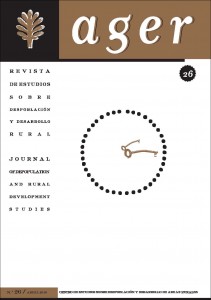Socioeconomic determinants of broadband non-adoption among consumer households in South Carolina, USA
Resumen
The policy environment around broadband technology in the United States is shifting again and there are concerns about the impact these proposed changes will have on the future of rural broadband deployment and access. Similar to the Obama administration’s discussion of net neutrality, reclassifying high-speed internet is again receiving growing media and policy attention at the federal and state level in the United States. Globally, it is argued that affordable high-speed internet access is imperative to rural and regional economic development success. The global digital divide and challenges of non-adoption impact both developing and developed nations. While many studies have focused on the availability and broad categories of adoption of high-speed internet, few have clarified non-adoption characteristics within states. In a largely rural state such as South Carolina, the issues of access and usage are increasingly relevant as broadband has the potential to improve the access and quality of a range of public and private services, as well as overall state and regional economic well-being. This study focuses on the characteristics of nonadoption of high speed internet in South Carolina, with a particular focus on rural households in the state. Through the use of a statewide survey of 1,200 South Carolina households, we determined which variables were significant for the non-adoption of broadband technology. Confirming international and national level research, the elderly, low income, and rural households across all demographics have lower broadband adoption. These results reveal opportunities to explore policy options that improve technology access across a range of low adoption and use groups in rural communities across the world.
Descargas
Publicado
Cómo citar
Número
Sección
Licencia
Aquellos autores/as que tengan publicaciones con esta revista, aceptan los términos siguientes:
- Los autores/as conservarán sus derechos de autor y garantizarán a la revista el derecho de primera publicación de su obra, el cuál estará simultáneamente sujeto a la Licencia de reconocimiento de Creative Commons que permite a terceros compartir la obra siempre que se indique su autor y su primera publicación esta revista.
- Los autores/as podrán adoptar otros acuerdos de licencia no exclusiva de distribución de la versión de la obra publicada (p. ej.: depositarla en un archivo telemático institucional o publicarla en un volumen monográfico) siempre que se indique la publicación inicial en esta revista.
- Se permite y recomienda a los autores/as difundir su obra a través de Internet (p. ej.: en archivos telemáticos institucionales o en su página web), lo cual puede producir intercambios interesantes y aumentar las citas de la obra publicada. (Véase El efecto del acceso abierto).

